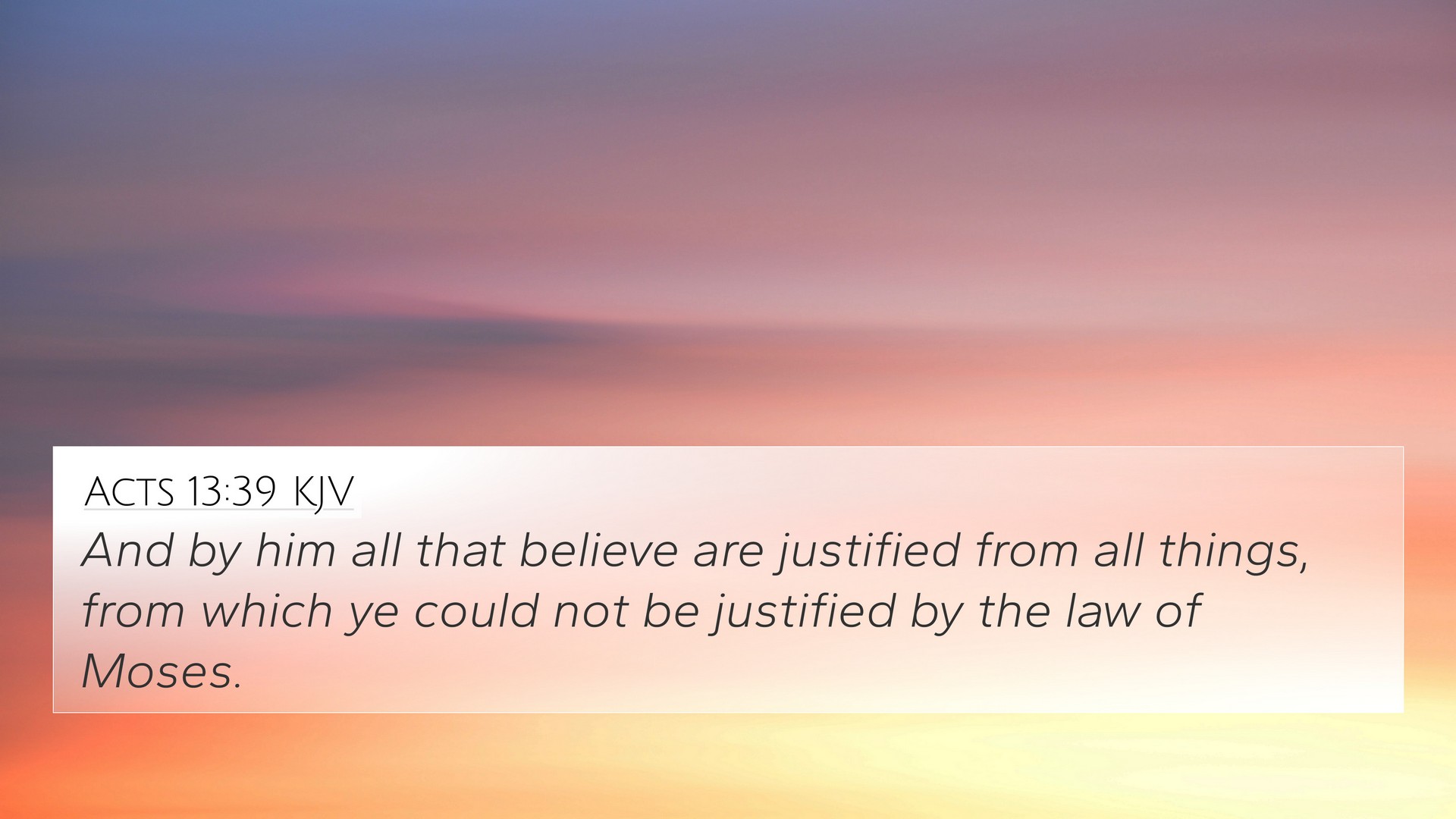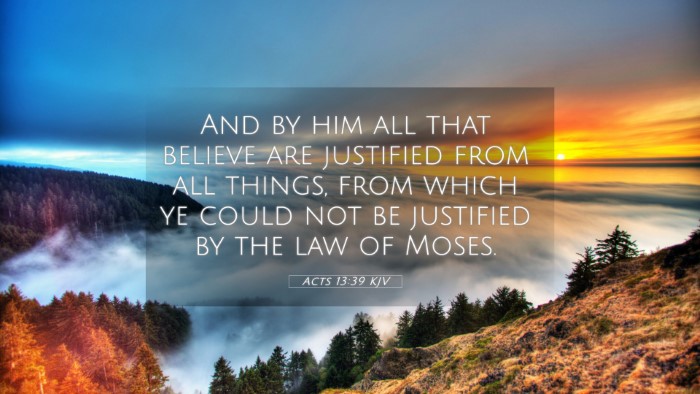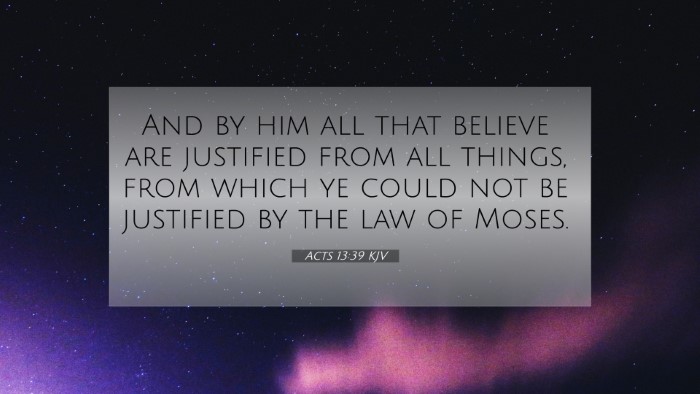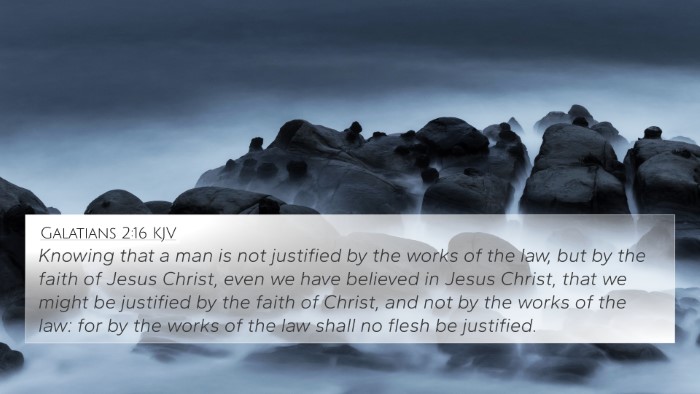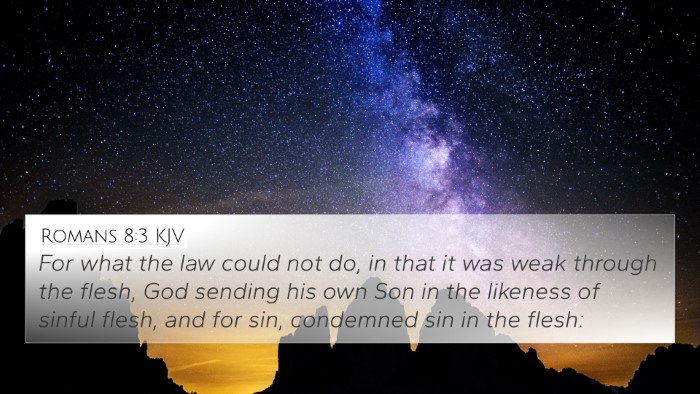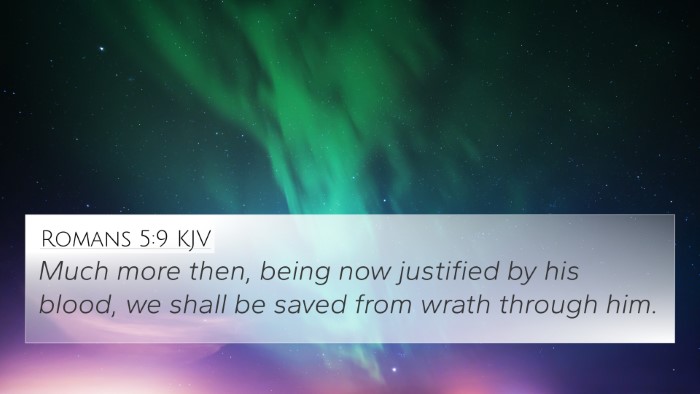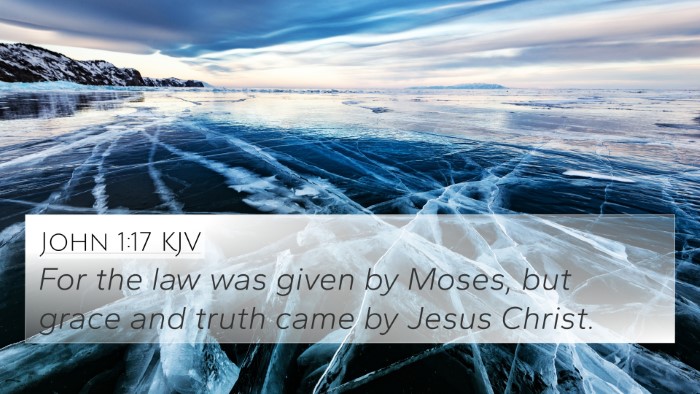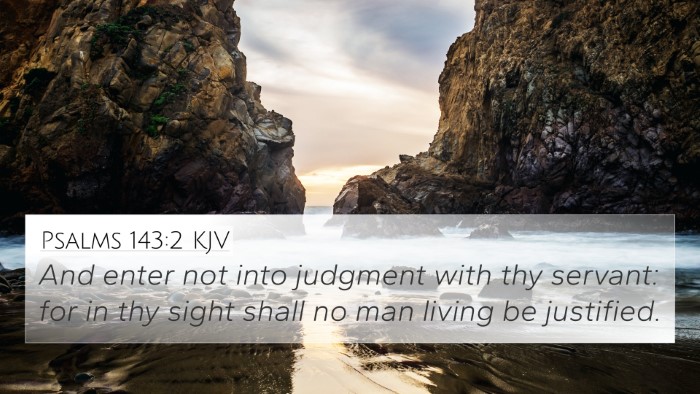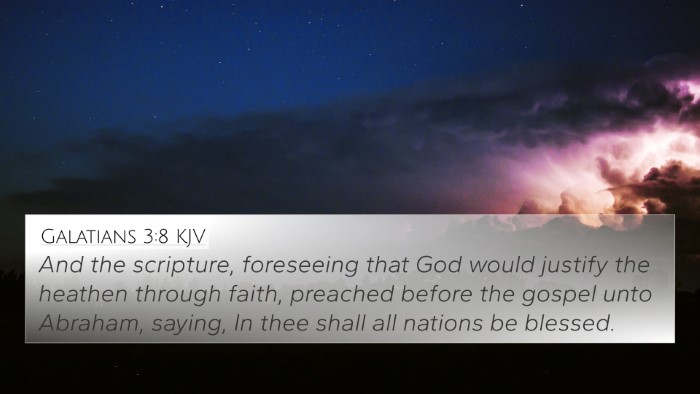Understanding Acts 13:39
Acts 13:39 reads: "And by Him all that believe are justified from all things, from which ye could not be justified by the law of Moses." This verse stands as a pivotal declaration of the doctrine of justification through faith in Jesus Christ, contrasting the insufficiency of the Mosaic Law with the sufficiency of Christ's redemptive work.
Meaning and Interpretation
This scripture encapsulates the core message of the New Testament: that salvation and justification before God comes through faith in Christ, rather than adhering to the works of the Law. The Apostle Paul, who speaks in this passage, underscores the notion that belief in Jesus empowers believers to attain righteousness that surpasses what the Law could ever achieve.
Key Insights
- Justification Explained: In theological terms, 'justification' refers to God's act of declaring a sinner righteous on account of faith in Christ. Here, the emphasis lies on the accessibility of justification for all who believe.
- Contrast with the Law: The verse compares the efficacy of faith in Christ with the Old Testament Law, revealing that the Law can expose sin but cannot absolve it.
- Universal Access: This passage signifies that justification through faith is available to all people, regardless of their background or adherence to the Law.
- Role of Christ: Christ is portrayed as the central figure through whom justification is obtained, reinforcing the centrality of His sacrifice in Christian doctrine.
Historical Commentary
Looking at the historical commentaries by Matthew Henry, Albert Barnes, and Adam Clarke, we find consistent themes emphasizing the need for faith beyond ceremonial law:
- Matthew Henry: He notes that the promise of justification through faith, as declared by Paul, aligns with God's plan, beginning from Abraham's faith, through the Torah, and fulfilled in Christ.
- Albert Barnes: He emphasizes that this verse clarifies that no actions under the Law can justify one before God—a truth Paul frequently reiterated in his epistles.
- Adam Clarke: Clarke points out that the verse reinforces the concept of grace, whereby believers are not redeemed by their works but by faith in Christ alone, affirming the sufficiency of God's grace.
Cross-References
To deepen your understanding of Acts 13:39, consider these related Bible verses:
- Romans 3:28: "Therefore we conclude that a man is justified by faith without the deeds of the law." - This verse emphasizes faith as the sole means of justification, reinforcing Paul's argument in Acts.
- Galatians 2:16: "Knowing that a man is not justified by the works of the law, but by the faith of Jesus Christ..." - Further illustrates the relationship between faith and justification.
- Romans 5:1: "Therefore being justified by faith, we have peace with God through our Lord Jesus Christ." - Reflects the peace and relationship restoration that follows justification.
- Hebrews 10:14: "For by one offering he hath perfected for ever them that are sanctified." - Shows the finality and completeness of Christ’s sacrifice.
- Philippians 3:9: "...and be found in him, not having mine own righteousness, which is of the law, but that which is through the faith of Christ..." - Highlights the futility of seeking righteousness through the law.
- 2 Corinthians 5:21: "For he hath made him to be sin for us, who knew no sin; that we might be made the righteousness of God in him." - Illustrates how Christ's sinlessness grants believers His righteousness.
- John 3:18: "He that believeth on him is not condemned: but he that believeth not is condemned already..." - Affirms the necessity of faith for justification.
Conclusion
Acts 13:39 encapsulates a profound theological truth: justification comes through faith in Jesus Christ alone. This verse not only stands as a testament to the grace offered to believers but also serves as a link connecting various themes throughout the scriptures regarding faith, righteousness, and salvation.
Exploring Connections and Themes
As we examine Acts 13:39, the importance of cross-referencing Biblical texts becomes evident. This verse invites us to engage in a comparative Bible verse analysis by linking it to various New Testament letters and teachings while simultaneously identifying its roots in Old Testament practices. Understanding the thematic connections can enhance our Bible study, enabling a holistic view of the Scriptures.
Final Thoughts on Bible Cross-Referencing
Utilizing tools for Bible cross-referencing allows believers to explore the richness of scripture, identifying connections between different passages that provide comprehensive insights into faith and justification. Finding cross-references for specific verses enriches our understanding and application of scripture in our lives.
